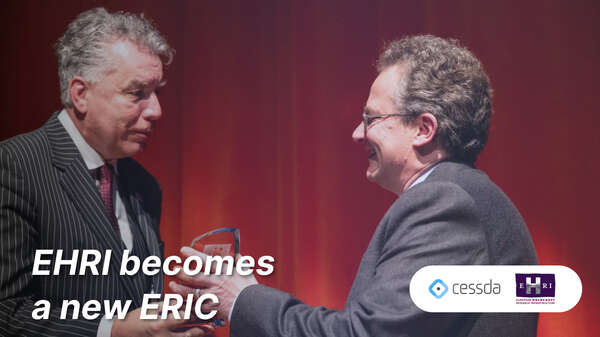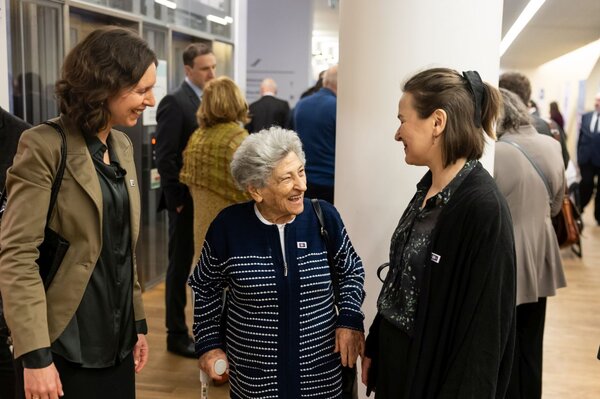
European Holocaust Research Infrastructure becomes a new ERIC
On January 20th, one week before the International Holocaust Remembrance Day, the European Commission granted the legal status of European Research Infrastructure Consortium (ERIC) to the European Holocaust Research Infrastructure (EHRI), making it the 30th ERIC to be established since 2011, and the 6th in the social sciences and humanities domain.
EHRIs is the only permanent trans-national organization that combines the forces of many institutions to collaborate on Holocaust research. EHRI actively identifies and integrates information and helps archives with preservation.
EHRI’s director, Dr. Reto Speck, underscored the urgency of EHRI becoming an ERIC, particularly in light of current global challenges:
"Holocaust research is never purely an academic concern, but also a social, cultural and political imperative. Europe can only flourish if it understands its past and if it continues to take seriously the lessons and legacies of the dark chapters of its own history. And this is particularly true in today’s climate where antisemitism, racism, xenophobia, hate speech and aggressive nationalism are on the rise and societal divisions are continuously exacerbated. It is my sincere hope that EHRI-ERIC will not only significantly boost the quality, quantity and impact of Holocaust research, but that it can also put the societal relevance and importance of this research into the spotlight."

Krystyna Budnicka, Survivor of the Warsaw Ghetto, representing Holocaust survivors
Foto:Maciek Jazwiecki
This development marks a significant step forward in EHRI’s mission to bridge the gaps between dispersed archival materials across Europe and beyond. By doing so, it seeks to overcome the fragmentation of Holocaust historiography and foster a more comprehensive understanding of his pivotal event in European history.
Ekaterina Zaharieva, Commissioner for Startups, Research and Innovation at the European Commission, also highlighted the significance of EHRI:
in promoting open access to historical data, safeguarding Europe’s shared heritage, and to explore the complexities of the Holocaust and its impact on European society.
You can read the full statement from the European Commission here.